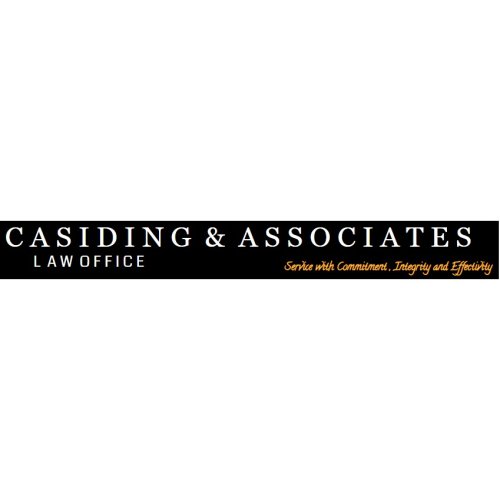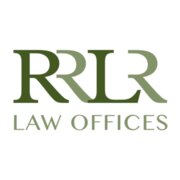Best Financial Services Regulation Lawyers in Makati City
Share your needs with us, get contacted by law firms.
Free. Takes 2 min.
List of the best lawyers in Makati City, Philippines
About Financial Services Regulation Law in Makati City, Philippines
Financial Services Regulation in Makati City, Philippines, encompasses laws and policies that govern the conduct, services, and products offered by financial institutions such as banks, insurance companies, and investment firms. The regulatory framework ensures transparency, stability, and integrity in the financial markets, while protecting investors and the public from malpractices. The Bangko Sentral ng Pilipinas (BSP), Securities and Exchange Commission (SEC), and Insurance Commission are key regulatory bodies involved in overseeing the financial services sector in the Philippines.
Why You May Need a Lawyer
There are several situations in which someone might require legal assistance concerning Financial Services Regulation in Makati City:
- Compliance and Licensing: Financial entities may need help understanding regulatory requirements and obtaining necessary licenses to operate legally.
- Dispute Resolution: Legal support may be needed in disputes involving financial products, services, or transactions.
- Regulatory Investigations: Assistance is often required if a company or individual is subject to an investigation by regulatory authorities.
- Contract Review: Ensuring financial contracts comply with relevant regulations and do not violate consumer rights.
- Policy Development: Developing internal compliance policies and training programs that align with local regulations.
Local Laws Overview
The financial services industry in Makati City, like the rest of the Philippines, is primarily governed by the following key regulations:
- BSP Guidelines: Overseeing banking institutions, the BSP provides guidelines to ensure financial stability and consumer protection.
- Securities Regulation Code: Regulates securities businesses to protect investors from fraud and promote transparency.
- Anti-Money Laundering Act: Sets the framework to prevent money laundering and terrorist financing in the financial system.
- Investment Company Act: Governs the operation of investment companies to promote fair practices and protect investors.
Frequently Asked Questions
What is the role of the BSP in financial regulation?
The Bangko Sentral ng Pilipinas oversees monetary policy and regulates bank operations to promote financial stability and protect consumers.
How does the SEC protect investors?
The SEC enforces securities laws, prevents fraud, and promotes full disclosure to protect investors and maintain fair markets.
What is required for a financial institution to operate in Makati City?
Institutions must obtain the appropriate licenses from regulatory bodies such as the BSP, SEC, or Insurance Commission and comply with relevant laws.
What rights do consumers have under financial services regulation?
Consumers are entitled to transparent information, fair treatment, and redressal mechanisms in case of financial service disputes.
What are the penalties for non-compliance with financial regulations?
Penalties can include fines, imprisonment for responsible individuals, revocation of licenses, and other sanctions imposed by regulators.
Can individuals file complaints against financial institutions?
Yes, individuals can file complaints with the respective regulatory body, such as the BSP or SEC, for any grievances regarding financial services.
How are financial dispute resolutions handled?
Dispute resolutions can be handled through mediation, arbitration, or in some cases, litigation, depending on the contract and severity of the case.
What is the Anti-Money Laundering Act?
This law provides measures to detect and prevent money laundering and related activities, with obligations for financial institutions to report suspicious transactions.
Who are considered 'Covered Persons' under the Anti-Money Laundering Act?
'Covered Persons' include banks, non-bank financial institutions, and other persons or entities involved in financial activities specified by law.
How are international financial services regulated in the Philippines?
International financial services are subject to both local regulations and any applicable international agreements and standards.
Additional Resources
The following resources can be helpful for those seeking legal advice in Financial Services Regulation:
- Bangko Sentral ng Pilipinas (BSP): The central bank offering guidance and information on banking regulations.
- Securities and Exchange Commission (SEC): Provides resources and updates on securities regulation.
- Insurance Commission: Oversees the insurance sector and provides consumer protection resources.
- Philippine Institute of Certified Public Accountants (PICPA): Offers insights into financial accounting and regulatory issues.
Next Steps
If you require legal assistance in Financial Services Regulation, consider taking the following steps:
- Identify the specific area where legal advice is needed-whether it's compliance, dispute resolution, or contract review.
- Conduct a search for experienced lawyers or law firms that specialize in financial services regulation in Makati City.
- Schedule consultations to discuss your situation, evaluate the expertise of potential lawyers, and understand their approach to your case.
- Review the terms of engagement from prospective legal advisors to ensure clarity on fees, processes, and expectations.
Lawzana helps you find the best lawyers and law firms in Makati City through a curated and pre-screened list of qualified legal professionals. Our platform offers rankings and detailed profiles of attorneys and law firms, allowing you to compare based on practice areas, including Financial Services Regulation, experience, and client feedback.
Each profile includes a description of the firm's areas of practice, client reviews, team members and partners, year of establishment, spoken languages, office locations, contact information, social media presence, and any published articles or resources. Most firms on our platform speak English and are experienced in both local and international legal matters.
Get a quote from top-rated law firms in Makati City, Philippines — quickly, securely, and without unnecessary hassle.
Disclaimer:
The information provided on this page is for general informational purposes only and does not constitute legal advice. While we strive to ensure the accuracy and relevance of the content, legal information may change over time, and interpretations of the law can vary. You should always consult with a qualified legal professional for advice specific to your situation.
We disclaim all liability for actions taken or not taken based on the content of this page. If you believe any information is incorrect or outdated, please contact us, and we will review and update it where appropriate.















